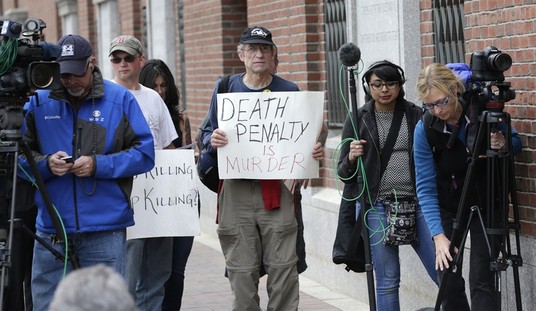“The smallest of the small fish.” This is how the Dutch law professor Christian F. Rüter has described John Demjanjuk and his role in the Nazi death camp system. Rüter is the co-editor of the projected 50 volume Justiz und NS-Verbrechen or “Nazi Crimes on Trial,” a comprehensive collection of trial judgments handed down by German courts in Nazi capital crimes cases. Once upon a time, it was thought that Demjanjuk, born Ivan Demjanjuk in Ukraine, was “Ivan the Terrible,” a particularly sadistic Ukrainian guard at Treblinka. Israel even tried and convicted Demjanjuk for the crimes of Ivan. And then released him five years later after evidence emerged that Demjanjuk had been a victim of mistaken identity: he was not that Ivan, after all. “Nobody would pay any attention to Demjanjuk,” Rüter told the German daily Die Frankfurter Allgemeine Zeitung (FAZ) , “If the rumor had not stuck to him that he was ‘Ivan the Terrible’ — which he demonstrably is not.”
Even the very description of Demjanjuk as a suspected “Nazi war criminal” is misleading — to say nothing of the wildly exaggerated ranking of him as the “number one” Nazi war crime suspect. In the sense that every cog in the machinery of the Nazi camp system was somehow involved, Demjanjuk may well have been involved in Nazi war crimes. Based solely upon the evidence of an identity card whose authenticity has long been contested, German investigators claim that he served as a guard at the Sobibor extermination camp. But even if this should be true, Demjanjuk was not a Nazi, much less an SS man, as is commonly suggested. Demjanjuk was in fact himself a Red Army soldier who was taken prisoner by the Germans in 1942 and interred at a Soviet POW camp at Chelm in occupied Poland. If Demjanjuk served the Germans at all, he did so as a so-called SS “Hilfswilliger,” which is to say, a “volunteer helper” of the SS.
Moreover, the “voluntary” character of these “volunteers” must be regarded as a highly relative matter. The brutality displayed by the Germans to Soviet prisoners of war is legendary. In keeping with the Nazi disdain for Slavs — or Slavic “sub-humans,” as the Nazis labeled them — captured Red Army soldiers were notoriously permitted to starve to death. It is estimated that over half of the Soviet soldiers captured by the Germans died in captivity. According to Friedrich Schmidt writing in the FAZ, investigators “are convinced that Demjanjuk offered his services as a so-called volunteer helper in order to save himself from starvation.” Indeed, the very fact that Demjanjuk is alive is regarded as proof of the falsity of his claim that he remained a simple POW, since “the conditions at Chelm suggest that he could not have survived there for so long.”
So why does Germany appear intent on trying Demjanjuk of all people? Why try a foreigner who was conscripted into service by the Germans under desperate circumstances and who is alleged to have participated in crimes that occurred on foreign soil? (Or do German prosecutors believe that the German occupation of Poland was legitimate and that the German so-called “Generalgouvernement” over Polish territory is still in place?) Germany’s pursuit of Demjanjuk creates the impression that Germany is extraordinarily thorough about prosecuting Nazi war crimes. And this indeed must be the point of the exercise — because the reality could hardly be more different.
Since the creation of the Federal Republic of Germany in 1949, the German courts and the German legislature have displayed incredible indulgence toward Nazi war criminals, transforming the territory of the Federal Republic (i.e., from 1949-1990 “West Germany”) into a more or less safe haven for them. The Nazis in question are, however, Germans and hence real Nazis and not merely imaginary ones like John Demjanjuk.
As Christian Rüter has pointed out, it has in fact been the express policy of the German authorities responsible for the prosecution of Nazi crimes to refrain as a rule from bringing charges against “small takers-of-orders”: “like, for instance, members of firing squads [Erschießungskommandos].” The latter specification is included in a 1959 judgment of the District Court of Bielefeld. It should be underscored that it refers, of course, to Germans — i.e., persons who were unquestionably above the likes of John Demjanjuk in the command hierarchy and whose direct participation in murder is known. Millions of Jews and Soviet communist officials were killed by such “firing squads” on the Eastern Front: most notably, by the infamous SS Einsatzgruppen.
In 1968, the Bundestag got in on the act, including an inconspicuous paragraph in an inconspicuous law that amounted, in effect, to a general amnesty for all mere “accessories” to Nazi crimes. (For the details, see my earlier article on the Demjanjuk case here.) Only suspects whose special culpability was established by “particular personal characteristics” were to be excluded from the dispositions in question. Even supposing that it is legitimate for Germany to claim jurisdiction in his case, it is completely obvious that Demjanjuk — the “smallest of the small fishes” — should benefit from these dispositions. That German prosecutors are preparing charges against him anyway is perhaps the clearest indication that the purpose of the proceedings is not justice, but to put on a show trial for foreign consumption. The temptation to exploit Demjanjuk’s accidental notoriety in order to create a myth of German vigilance appears to have been too powerful to resist.
Moreover, even larger fishes in the Nazi order, including such as bore direct responsibility in implementing the Nazis’ genocidal “Jewish policy,” have avoided prosecution. (On the example of Hans Gmelin, see my earlier discussion here. Gmelin was the father of Herta Däubler-Gmelin, the former German minister of justice who famously compared George Bush to Adolf Hitler.) The 1968 “backdoor amnesty” in fact specifically benefited the bureaucratic planners of the Holocaust in the so-called Reich Main Security Office (RSHA). Other larger fishes were brought to trial, but got off with mindbogglingly light sentences or were acquitted. The SS officer Joseph Oberhauser, for example, was in charge of all the foreign “volunteer helpers” at Treblinka, Sobibor, and Belzec. In 1965, the Munich District Court found him guilty of complicity in the murder of some 300,000 persons. His sentence? Four years and six months in prison. As the German legal historian Ingo Müller has observed, this works out to a total of 7.8 minutes for each of his victims. All eight of Oberhauser’s codefendants — every one of them an SS officer — were acquitted.
According to an article on the English site of the German magazine Der Spiegel, German authorities already have their “sights” on four other suspected “Nazi war criminals” who immigrated to the United States. Three of them are former foreign “volunteers” and the other is an Austrian who has already been deported to his country of origin. Der Spiegel notes that it has been “difficult” to prosecute the foreign auxiliaries to Nazi crimes. But German authorities really do not have to look so far afield or go to so much trouble if they want to prosecute Nazi war criminals. Although their number, of course, diminishes from year to year, many homegrown and authentic Nazi war criminals are living in Germany. Both their crimes and their places of residence are known. Below is a list of seven Nazi war criminals, for example, that German prosecutors can indict right away. Their places of residence are given in parentheses.
Karl Gropler (Wollin)
Georg Rauch (Rümmingen)
Gerhard Sommer (Hamburg)
Alfred Mathias Concina (Freiberg)
Werner Bruss (Reinbek bei Hamburg)
Heinrich Schendel (Ortenberg)
Ludwig Göring (Karlsbad)
The seven men were members of the Waffen SS “Reichsführer” division that slaughtered some 560 Italian civilians in the infamous massacre of Sant’Anna di Stazzema in August 1944. Some 80% of the victims were women, children, and elderly persons. In June 2005, an Italian court found the seven men guilty of murder for their roles in the massacre. They have never faced punishment, however, because Germany refuses to extradite them. Three convicted co-defendants are reported to have died in the meanwhile. Germany likewise refuses to extradite many other convicted participants in SS massacres on foreign soil. Like countless Nazi war criminals before them, Gropler, Rauch, Sommer, Concina, Bruss, Schendel, and Göring are living out their lives in comfortable retirement in Germany.









Join the conversation as a VIP Member